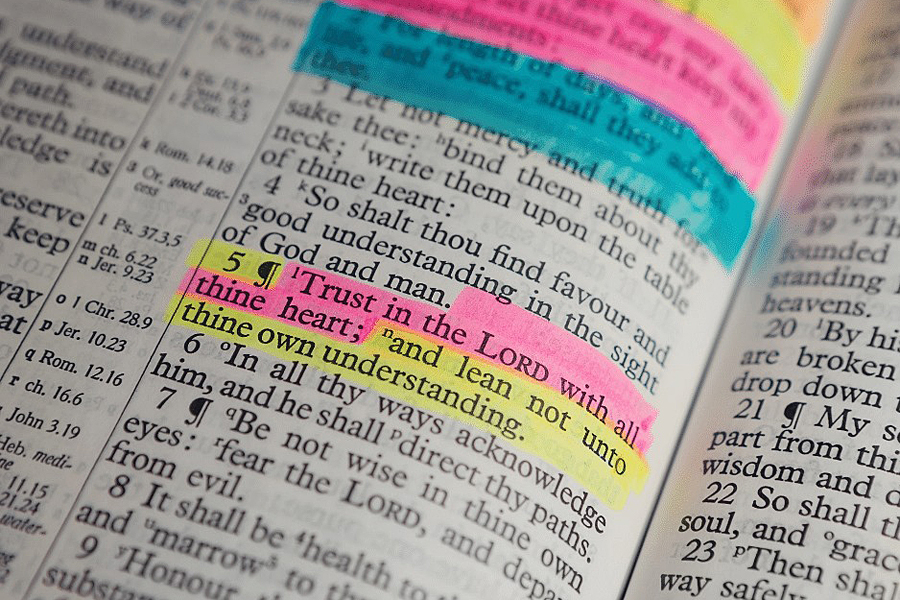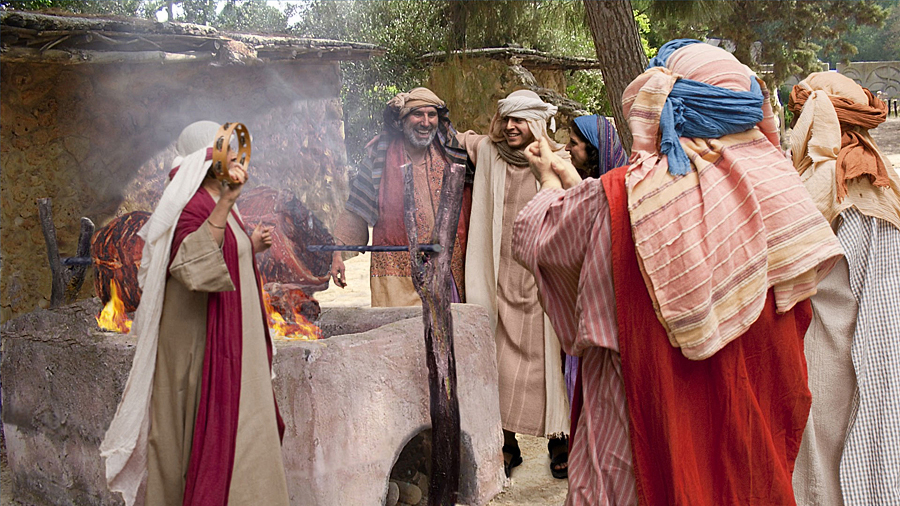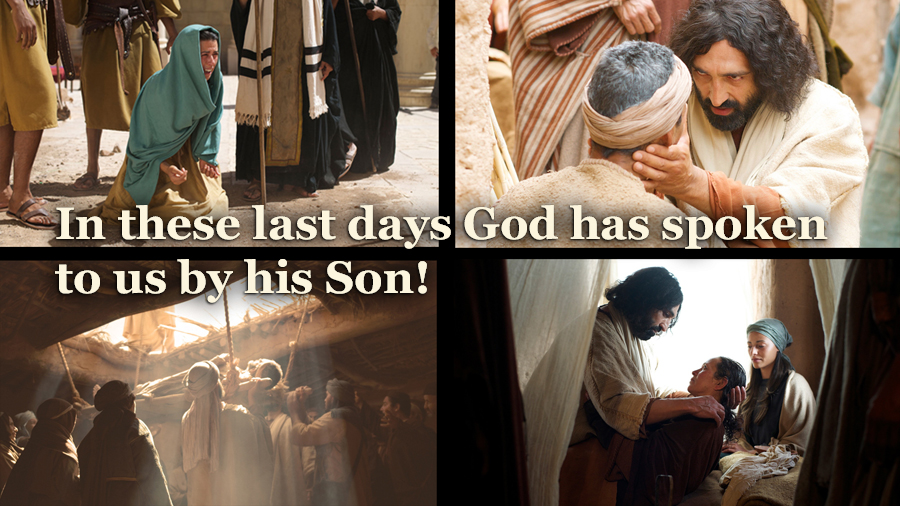You study the Scriptures diligently because you think that in them you have eternal life. These are the very Scriptures that testify about me, yet you refuse to come to me to have life (John 5:39-40).
From Phil:
Some people like to blast millennials as lazy, care-about-nothing, self-absorbed, selfie-posting young adults. The characterizations of this emerging group of adult leaders are little more than the caricatures of a group that is far from monolithic.
Most of my experiences with millennials and younger adults come from ministry with passionate young men and women. People willing to sweat, risk, and get their hands dirty to bring grace and fairness to people struggling with poverty, poor housing, orphaned, and abused. They are more grit and grace than talk when it comes to making a difference in our broken world.
One of my favorite young adults is Jordan Harrell. She writes with grit and writhing honesty. I don't necessarily agree with every insight and opinion she shares, but I resonate with most of her faith discoveries. I'm pretty sure she doesn't agree with everything I write or preach, either. However, I do appreciate her search - her pursuing Jesus beyond the safety of easy acceptance by her religious heritage. She has grown dissatisfied with "church-in-box" religion as she has experienced it. Jordan wants to find faith and community built around God's message revealed in Scripture and personified in the incarnation of God's truth in Jesus. So, every now and then, I will share a pithy kernel of what she has posted, comment on it, and give a few biblical examples of her message.
Why?
Because she, and all Jesus-seekers like her, need to know there folks a generation or two ahead who believe the ultimate call of faith is for us to pursue Jesus unflinchingly. Such folks believe that we are called to restore the presence of Jesus to the world through his family of faith, seekers longing to be JesuShaped, not culture-shaped or even church-shaped. We want to be authentic disciples of the Lord Jesus.
From Jordan:
Sometimes I wonder if the place we started going off the rails was the moment we divided the Bible into chapter and verse.
The moment we stopped reading it as an epic story and began using it as a legal text or a government document: “Please reference Article V, Section 4, Point B, as to why you are completely wrong, and I am 100% right.”
The moment we started taking individual verses as proof texts to prove our point, treating them as bullets to load into our Guns of Truth, stones to cast out of our holy hands.
The moment we stopped experiencing the arc of God’s beautiful redemption story and started memorizing random sentences completely out of context without taking into consideration anything other than the literal black and white words.

Maybe that’s the moment we lost it.
The love story.
The wisdom.
The color.
The hope.
Maybe that’s the moment we lost the heart of the Father.
Phil's Response and Examples
Chapter and verse divisions are a great tool for us to help find where messages are in Scripture. However, they are not inspired. They were added many years after the original inspired documents of our faith were written. As a reminder to read our Bible books in the form they were originally written, the ESV (English Standard Version) has blessedly begun to offer individual books of the Bible without chapter and verse division in their English Standard Version Reader's Bible. We can read each Bible book in the flow of its message - whether narrative, poetry, prophecy, wisdom saying, letter, sermon, or combination of forms. If you want to know Jesus and his story in a fresh way, I encourage you to look at one of the gospels - or better yet, all four of them: Matthew, Mark, Luke, and John - in this format. How refreshing!
In addition, most of our New Testament "books" were written to be read aloud to gathered groups of disciples (Revelation 1:3; Colossians 4:16). We miss many of the rhetorical tools they use to outline their writings because we are unfamiliar with them. The chapter and verse references can obscure these organic divisions woven into the message. Hopefully, we can get to some of these in future posts, especially focussing on the built-in outlines of the four Gospels.
I want to share two specific places that are fairly familiar to us that we miss the central message precisely because the chapter and verse references fall in an unfortunate place.
Place One:
Few chapters of the Bible are more precious to Jesus' followers than Luke 15. These messages about the celebration of God and the heavenly hosts at lost people being found remind us of how much God loves all of us. The climactic conclusion is the reminder that the Father loves the prodigal children who have blown their lives up with sin, and he is waiting for them to come home and have a part for them. He is also the Father who loves his prodigal children who lose sight of his generosity and his joy of a broken and lost family reunited. (Most folks miss the point that the oldest son received his full inheritance, the far larger chunk of the inheritance when the younger son received his smaller portion.)
The chapter and verse divisions between Luke 14 and Luke 15 obscure a key insight to Jesus' three parables. Notice how the connection looks, feels, and reads, without chapter and verse divisions, especially the hook word, "hear" which ties the two narratives together:
... "In the same way, those of you who do not give up everything you have cannot be my disciples."Salt is good, but if it loses its saltiness, how can it be made salty again? It is fit neither for the soil nor for the manure pile; it is thrown out.
"Whoever has ears to hear, let them hear."
Now the tax collectors and sinners were all gathering around to hear Jesus. But the Pharisees and the teachers of the law muttered, “This man welcomes sinners and eats with them.”
Then Jesus told them this parable... (Luke 14:33-15:3).
Remember, Luke is writing for those with influence, power, education, and money. There were people also trying to honor God and figure out how to follow Jesus. We know this from the quality of Luke's Greek, his use of Theophilus as his recipient of his two-volume history, and his upside-down kingdom emphasis. So, when Jesus says that we have to give up everything to be his disciple, the question then becomes, "How can I (as a person of privilege and religion and influence) do that?"
Luke's answer? The people who "hear" Jesus' message were tax collectors and sinners! They were willing to give up everything and turn their lives around to follow Jesus. They could experience the joy of the Kingdom and the Father! But, we (religious and influential) people are better than those undesirables. We are good religious people. And, this is where the journey through Jesus' three parables becomes crucial in this context.
The three parables are told for those of us in Theophilus' shoes - the haves, the blessed, the powerful, the churchgoers. We want to cling to our stuff and add a little love for Jesus to the mix. Jesus' point (as Luke emphasizes it) is that we have missed the party by trying to hang onto our stuff - we are the older son. By trying to hold on to our position and self-made piety, we've missed the joy of our Father and the party he longs to throw for all of us who love him and give up all to follow Jesus!

Jesus does the unthinkable in his culture in telling the third parable, so it speaks to us. He identifies God as the Father who would humiliate himself and go out and try to redeem his self-righteous, unappreciative, religious son, who is so full of himself. The "good" son can't see that giving up all his self-righteous pretensions is the only way to find that the heart of the Father is the greatest gift of all. As the older son, only when we reach this place can we then go in and dance at the party of grace!
Place Two:
Growing up, we were taught that church had to be done "right" or we would bring God's judgment, his fire, down on our heads in punishment. This meant doing a set of things on Sunday, in the church box, exactly like we were supposed to do them. The proof text to dangle us over the fires of judgment were Hebrews 12:28-29:
Therefore, since we are receiving a kingdom that cannot be shaken, let us be thankful, and so worship God acceptably with reverence and awe, for our "God is a consuming fire" (Hebrews 12:28-29).
Well, look at Jesus! What did Jesus teach? And, how did Jesus live... and worship God... and celebrate truth... every day of his life?

Now, let's go back to Hebrews and notice that in chapter 13, the Holy Spirit led the writer of Hebrews to say:
Through Jesus, therefore, let us continually offer to God a sacrifice of praise - the fruit of lips that openly profess his name. And do not forget to do good and to share with others, for with such sacrifices God is pleased (Hebrews 13:15-16).
If we are paying attention, we realize that these two verses are the ending bookends to Hebrews 11:28-29 and a summary on what he has just taught as acceptable worship "with reverence and awe." While the summary is a pretty good summary of that teaching, as well as the life of Jesus when we go back and look at what has been listed as this acceptable worship in the verses in between these bookends (The technical term for this section is inclusio.)
- Keep on loving each other as brothers and sisters - vs. 1.
- Show hospitality to strangers - vs. 2.
- Remember those in prison - vs. 3.
- Marriage, and sexual intimacy in marriage, should be kept holy and sacred - vs. 4.
- Don't let your lives become entangled with money - vs. 5-6.
- Remember your leaders, especially as they were examples of Jesus - vs. 7-8.
- Don't get hung up on food, what to eat and what not to eat, but find your joy in receiving God's gifts with grace - vs. 9-10.
- Don't try to be accepted in political or social circles, but follow Jesus, who was rejected by both, and live to honor God - vs. 11-14.
Suddenly, when understood in the way the Holy Spirit intended, worshipping God means something a lot bigger than behaving in church. It is certainly much more comprehensive than using some religious color by numbers prescription for an acceptable worship service. Genuine worship is so much richer when we see it is woven into all of life. And, dare I say, if the principles of daily living in Hebrews 12:28-13:16 were the worship we pursued, we would be less vulnerable to prejudice, bigotry, racial hostility, and more open to the kind of people Jesus welcomed?
Yes, our chapter and verse approach to the Bible can help look up certain things in our Bibles. But, Jesus is still God's most comprehensive message of himself and his truth (Hebrews 1:1-3; John 1:1-18). And, when we remove the blinders of these chapter and verse divisions, guess what? The heart of God is there for us to see, drop our religious pretensions, give everything we are to Jesus, and join our Father at his party.

Special thanks to The Lumo Project and Free Bible Images for images related to the ministry of Jesus.












Comments
Have thoughts on this article? Leave a comment